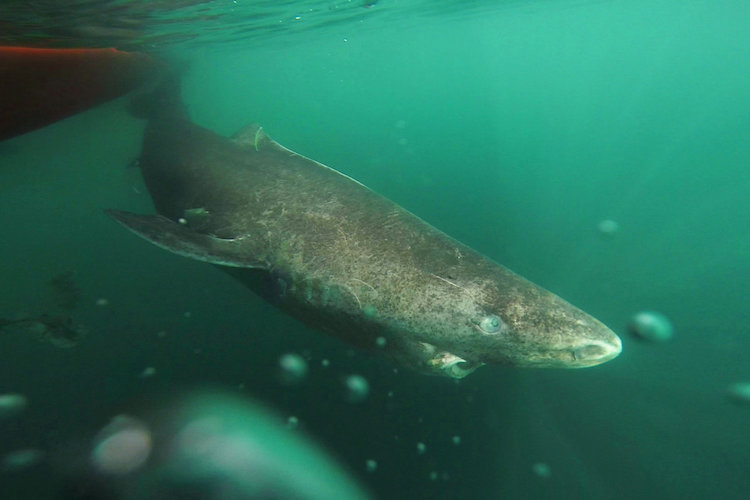Animals
Ancient Greenland sharks could hold the secret to longevity
Danish scientist Julius Nielsen, from the University of Copenhagen, has been researching cold water sharks for the past several years after a research vessel captured 28 female Greenland sharks as unintended by catch from 2010 to 2013. These carnivores can grow more than sixteen feet long, but, according to Nielsen, they’re slow growth was an early indicator that this species could live well over 200 years.
Greenland sharks have been thought to grow around a centimeter per year, similar to the ocean quahog clams that grow annual rings and can live for more than 500 years. Ocean quahogs may be the only animal to live longer than Greenland sharks. Until recently, the record for longest-living vertebrates stood with the bowhead whale, which lives up to 211 years and swims in Arctic waters.
Nielsen told NPR that up until the the recent studies, scientists only believed Greenland sharks lived this long but could not find evidence to support their claims.
“…we did not know in advance. And it was, of course, a very big surprise to learn that [the Greenland shark] was actually the oldest vertebrate animal.”
In a study published in the Science journal, Nielsen and his colleagues assert that radiocarbon dating techniques used on the lenses of the shark’s eyes prove that Greenland sharks can live to be at least 272 years old, and one caught shark may have been 512 years old. However, they’re still uncertain on this, and Nielsen says the most likely age for the oldest shark would have been 390. “It was, with 95% certainty, between 272 and 512 years old,” he said.
The fact that these sharks have been around since the time of the Pilgrims is intriguing enough, but scientists want to experiment and study the muscle tissue of Greenland sharks.
Steven Austad studies the biology of aging at the University of Alabama, Birmingham, and he realizes that the importance of Greenland sharks lifespan lies in both the cold temperatures of their habitat but also in their cells.
“I don’t think that cold is the whole story,” said Austad. “It’s probably playing a role. But my guess is there are plenty of short-lived animals that are swimming around with this shark… There’s something going on in those muscles that we’d very much like to know about.”
Scientists like Austad hope that further research could reveal the “physiological tricks” that animals like Greenland sharks and ocean quahogs use and have them be adapted to “human use.”
It’s hard to imagine sharks as anything other than terrifying forces in the oceanic depths, but they’re just animals, too, with feelings and families. And apparently they could hold the secret to longer life for humanity, so maybe we should cut them a break and try to be their friends.






0 comments